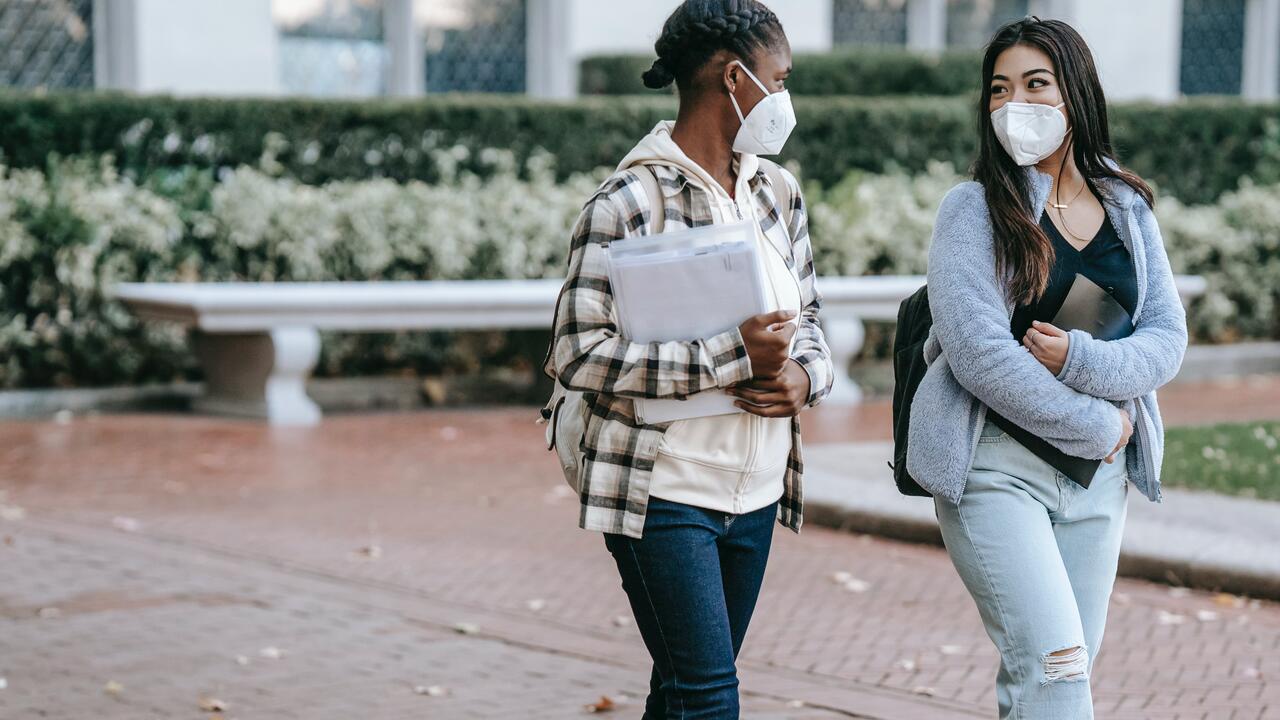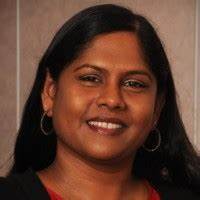
Giving back in memory of her mother
Grad launches bursary in her mother's name for a woman starting chemical engineering

Grad launches bursary in her mother's name for a woman starting chemical engineering
By Carol Truemner Faculty of EngineeringAn alumnus has started a bursary to assist a woman starting Waterloo’s chemical engineering program in much the same way she was supported over 20 years ago as a recent immigrant from war-ravaged Sri Lanka.
Jothi (Suntharampillai) Bavan (BASc ‘03, chemical engineering), senior manager at Ontario Power Generation, Darlington Nuclear Generating Station, launched the $2,000 Kanagampikai Suntharampillai Entrance Bursary earlier this year to be awarded to a woman in first-year chemical engineering.
Born in Sri Lanka, Bavan fled the country’s civil war to Canada when she was 17 along with other family members. They were sponsored by her oldest brother who arrived earlier in the country as a refugee.
While finishing high school in Canada, Bavan decided to apply to Waterloo’s chemical engineering program.
As a recent permanent resident without contacts or experience in the engineering industry, Bavan says she knew that a degree alone was not going to land her a job upon graduation.
“It was critical to get into a program with a co-op program to gain experience,” she says. “Obviously choosing the best university for an engineering degree was an added bonus!”
Another bonus was receiving a $1,000 scholarship as the top graduating student in her high school’s English as a Second Language (ESL) program from its teacher who also funded the award. As well, Bavan was awarded a $1,000 bursary from the University of Waterloo.
“As a new immigrant from a very low-income family, the award and bursary meant a lot to me – I was able to buy some necessities for my university life,” she says. “I set a goal for myself at that time to return these gestures to someone like myself one day.”
Alumnus Jothi Bavan has started a bursary for a woman starting chemical engineering.
The chemical engineer credits her parents for being a strong influence in her life and helping guide the decisions she has made throughout the years.
Bavan says her dad instilled the importance of women empowerment early in her life before he died of cancer when she was just 12 years old.
She introduced her bursary in honour of her mother Kanagampikai Suntharampillai who died in January 2020.
“Even when she was struggling emotionally and financially, she kept me focused and helped me achieve my dream,” says Bavan.
As a Waterloo student, Bavan was involved in Women in Engineering activities and was a member of the Waterloo Chapter of Engineers without Borders. She also volunteered as a graphics designer for Imprint, the University’s student newspaper, and served as one of the chemical engineering editors for RIGID Book 2003, Engineering’s Class of 2003 yearbook.
Today, she still participates in initiatives focused on promoting and supporting Women in Engineering and strives to inspire future engineers to choose Waterloo so that they can benefit in the many ways she did as a student.
To be eligible for the Kanagampikai Suntharampillai Entrance Bursary, women must be entering Waterloo’s chemical engineering program with a minimum of 80 per cent and have demonstrated financial need as determined by the University. This year’s application deadline is April 15.
“I personally benefited due to the generosity of others in my first year of engineering and I simply want to pass on the gesture,” Bavan says. “Financial burden should never be a hindrance to a woman in achieving her dreams.”
*Banner photo by Charlotte May from Pexels

Read more
Here are the people and events behind some of this year’s most compelling Waterloo stories

Read more
Waterloo Engineering community honours impact and innovation at annual awards dinner

Read more
Meet five exceptional Waterloo graduate students crossing the convocation stage as Class of 2025 valedictorians
The University of Waterloo acknowledges that much of our work takes place on the traditional territory of the Neutral, Anishinaabeg, and Haudenosaunee peoples. Our main campus is situated on the Haldimand Tract, the land granted to the Six Nations that includes six miles on each side of the Grand River. Our active work toward reconciliation takes place across our campuses through research, learning, teaching, and community building, and is co-ordinated within the Office of Indigenous Relations.